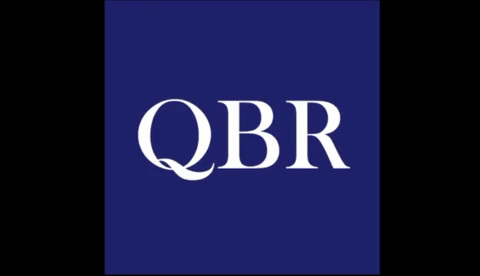Enough is Enough: How to be Anti-Racists at Queens
- QUnited

- Jun 20, 2020
- 3 min read
Updated: Jun 30, 2020
Black communities have been voicing their anger and frustrations against systemic racism for years, but it took the rest of the world until now to recognize the severe issues that exist within our country’s institutions. The death of George Floyd was a boiling point, making individuals acknowledge their own racial biases and sparking a long-overdue conversation in every facet of our society.
Queen's University has a history of both covert and overt acts of racism. This is the time for students at Queen's to demand answers and commit to being anti-racist.
"If you are from the BIPOC community- remember that self-care is the greatest act of resistance, there is."
About Meena

Meena Waseem is a second-year student studying in the Queen's Commerce Program in Kingston, Ontario. She is the Commerce Society's Diversity and Inclusion Officer (DIO), alongside her partner Kelly Zou. Her work as DIO involves working on projects and initiatives that address EDI in the Queen's Commerce Community and Queen's at large. Additionally, Meena is a member of the Queen's Women in Leadership team, and a consultant at FreshSight Consulting. Meena is a Loran Scholar and has a steady list of accolades awarded at both the secondary and post-secondary levels.
Meena is currently working with other students in her home region to review their school board’s School Resource Program, mandate anti-oppression training for school staff, and introduce community-led alternatives to disciplinary action.
There were crucial action-oriented takeaways after a discussion with Meena, and below we will highlight a few among many strategies you can use as a student to do anti-racist work:
Holding your social circles accountable and being anti-racist at Queen's
Learning
Anti-racism work begins with self-education. Learning and unlearning is a lifelong collective process. Learning is your key to developing a powerful toolkit of knowledge which you can use to amplify further the voices of Black leaders and educators across the country. Meena encourages learning with your friends and sharing informative content to commit to the learning process collectively.
Diversifying your Content
Meena highlighted the importance of integrating issues of race into our everyday lives. Doing so involves finding ways to keep your learning consistent and not solely cyclical with the daily news. Diversifying your feed means making an active commitment to carrying the momentum forward and automating learning into every aspect of your life.
Financial Privilege is Your Weapon
Those with financial privileges have a unique opportunity to disrupt the status quo. Where you put your dollars has dramatic impacts on our economic landscape. Find and locate Black businesses in your community and use your financial tools as a weapon against injustice. It is of utmost importance to support these Black-owned businesses as one of many strategies to fight against economic inequality. This further brings attention and creates a ripple effect within the community.
Holding Institutions Accountable
It is essential to recognize when our institutions are solely engaging in acts of performative activism. Meena says, when we understand these actions, it is our duty as students, faculty, and alumni, to pick up the phone and demand answers.
When engaging in active allyship on campus, it is important to recognize that there are already groups and experts on campus who have been doing this work for a long time. It is your role as an ally to amplify their voices and ensure that their requests are at the forefront. Focus on calls to action from the communities directly impacted. Meena says, "don't just ask for things because you think it will help; ask for the things that the groups who are already doing the work are asking for."
Concluding Thoughts
One of the most essential things Meena hopes you take from this is that: even at times, you feel as though you do not have enough information; your silence allows systems of privilege and inequity to continue. Your silence is compliance if you are not using your privileged voice to amplify black voices and speak out against acts of injustice. Your peers must see you as an ally, as it can encourage them to be one as well. To end, as Meena mentioned, "If you are from the BIPOC community- remember that self-care is the greatest act of resistance, there is."
Resources
Black Anti-Racism Content Creators to Follow on Instagram:
@ibramxk
@mengwe
@minaa_b
@iamtabithabrown
@iamrachelricketts
@blairimani
@rachel.cargle
@ijeomaoluo
Courses to take at Queen’s:
DEVS 100- Canada and the ‘Third World’
GNDS 120- Women, Gender, Difference
GNDS 125- Gender, Race and Popular Culture
HIST 122- The Making of the Modern World
HIST 124- Canada in the World
HIST 252- Africa in the Modern World
POLS 101- Contemporary Issues in Politics
SOCY 235- Race and Racialization
Organizations on Campus:
African and Caribbean Student’s Association: https://www.facebook.com/acsa.queensu.5
Queen’s Women of Colour Collective: https://www.facebook.com/queenswocc
Queens Black Premedical Association: https://www.facebook.com/QueensBPA/
Books to read:
How to Be an Antiracist by Ibram X. Kendi
So You Want to Talk About Race by Ijeoma Oluo
The New Jim Crow by Michelle Alexander
The Fire Next Time by James Baldwin
The Hate You Give Angie Thomas
Additional:






Comments